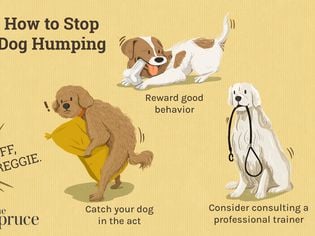Jam-packed with nutrients like calcium and protein, as well as probiotics that help support digestive health, yogurt is a nutritious food that has been consumed by humans for hundreds of years. It's believed to provide health benefits ranging from the prevention of diseases like heart disease and osteoporosis to boosting the immune system and aiding in weight control. But is it safe (and healthy) for our pets?
Generally speaking, yes, yogurt if done with certain precautions can be safe to share with your favorite four-legged friend—but veterinarians warn that just because its safe doesn't mean it's the best choice for every dog.
Is Yogurt Safe for Dogs?
Rich in both calcium and protein, yogurt is an extremely healthy food for humans. Often touted for its digestive benefits, yogurt is a well-known food source of probiotics, which are beneficial bacteria that promote gastrointestinal health. These benefits may extend to our pets with small amounts of yogurt from time to time.
However, many veterinarians agree that offering your pet a probiotic supplement formulated specifically for dogs is going to be more beneficial, as the amount of yogurt that would be recommended to offer dogs isn't going to be quite enough to provide significant health benefits.
Dangers of Yogurt for Dogs
While plain yogurt is not toxic to dogs, many dogs have difficulty digesting yogurt and other dairy products due to the fact that they contain lactose. After your dog leaves his or her year of puppyhood behind, their bodies are no longer designed to digest lactose—so feeding your dog yogurt or other sources of dairy might cause GI upset and symptoms such as diarrhea, vomiting, and gas. Any of these symptoms will warrant a call to your veterinarian, who can help guide you on how to safely ease your pooch's stomach upset.
Not only is the lactose in yogurt a concern, but its fat content. The high fat content in yogurt can cause your dog additional stomach upset. Too much fat in your pet's diet can even lead to more serious conditions, such as pancreatitis, an inflammation of the pancreas that can be potentially fatal.
If you are chosing to feed your dog yogurt, be very careful that the yogurt you are feeding your dog does NOT have an articial sweetener like xylitol. Any yogurts containing artificial sweeteners, like xylitol, are toxic for dogs, so any sort of sweetened or "low-fat/low-calorie" varieties should be off-limits for Fido as they often contain artificial sweeteners and other additives. In addition, high sugar foods are also not the healthiest for dogs just like for humans and yet many yogurts are high sugar. Be sure to read the label closely.
As with all treats, only offer your dog a small amount of plain xylitol free yogurt to see how he reacts. If your dog can tolerate yogurt, experts agree it's safe to offer a small amount as approved by your veterinarian as an occasional treat (try mixing it a little into your dog's food, smoothing it into a Kong toy, or even using it to bake healthy homemade dog treats).
Choosing a Yogurt for Your Dog
If you are going to feed your dog yogurt (and got the okay from your veterinarian), be sure to only choose varieties that are plain and free of any additives, such as either natural or artificial sweeteners like xylitol which can be very dangerous.
You'll always want also look for yogurt with active live cultures, such as plain Greek-style yogurt. This yogurt is also a better choice for your four-legged friend because it contains lower levels of lactose than regular yogurt. Your dog may also prefer the thicker texture of Greek yogurt (the whey has been strained out).
Unfortunately, even a small amount of xylitol-sweetened yogurt is toxic for dogs, as it can lean to dangerously low blood sugar and death. Therefore, pet owners should always stay away from yogurt varieties that are flavored with fruits or other types of “mix-ins," as these typically contain added sugar in the form of sugary syrups and other types of artificial sweeteners, including xylitol.
The bottom line is that while you'll want to limit any "human" food for your dog, yogurt falls within the "ten percent" rule that's often used by veterinarians—that is, treats like yogurt should comprise no more than ten percent of the calories your dog consumes every day. As such, factors such as your dog's size and weight will play a role in how much yogurt they can tolerate, as will any underlying health issues. Generally speaking, if approved by your veterinarian, adding a tablespoon of plain yogurt (without xylitol) to his or her food will likely be a safe addition to your dog who may enjoy a new and exciting texture to their meal.










Comments on " Can Dogs Eat Yogurt?" :